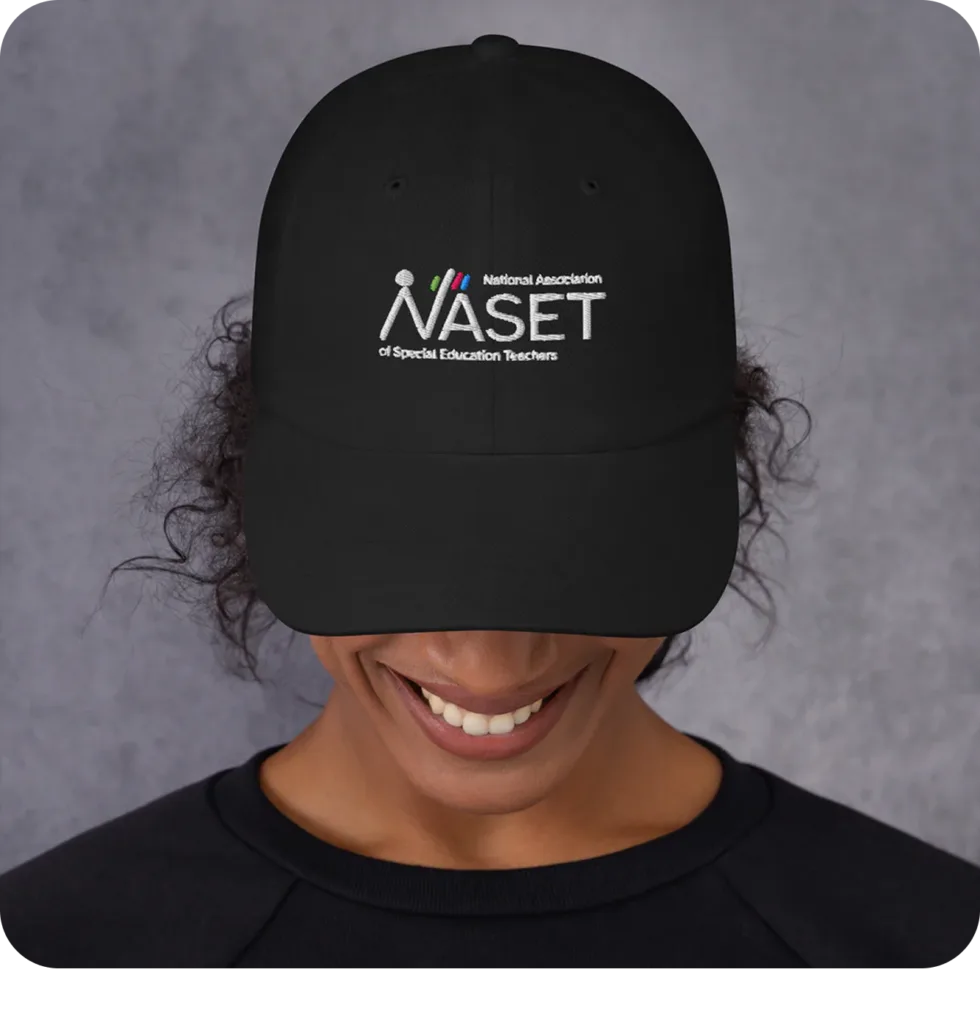By Dr. Camille Brandt
This issue of NASET’s Autism Spectrum Disorder series was written by Dr. Camille Brandt. Working with children identified with an Autism Spectrum Disorder (ASD) presents many wonderful opportunities as well as puzzles to solve for the curious early education teacher. Young children both with and without ASD learn words and phrases by listening to adults, family members, and peers around them as well as from sources including music, television, and other sources of language within their environment. It is not uncommon for children to quickly absorb and imitate phrases witnessed in moments of great excitement and strong emotion. Once repeated and reinforced, these may become part of the child’s repertoire. For the child impacted by autism, some words and phrases take on second meanings, changing from simple nouns and verbs to complex verbal representations of deeper emotions, fears, wants, and needs.
Working with children identified with an Autism Spectrum Disorder (ASD) presents many wonderful opportunities as well as puzzles to solve for the curious early education teacher. Young children both with and without ASD learn words and phrases by listening to adults, family members, and peers around them as well as from sources including music, television, and other sources of language within their environment. It is not uncommon for children to quickly absorb and imitate phrases witnessed in moments of great excitement and strong emotion. Once repeated and reinforced, these may become part of the child’s repertoire. For the child impacted by autism, some words and phrases take on second meanings, changing from simple nouns and verbs to complex verbal representations of deeper emotions, fears, wants, and needs.
Consider the case of Mike (not his real name). On the afternoon I was scheduled to observe him, I arrived in his classroom to find him barricaded in a corner beside a broken window he had smashed through with his fists, which were cut and bleeding. There were multiple adults in the room, brainstorming frantically on how to prevent him from injuring himself further through an attempt to climb out onto the snowy schoolyard. Amidst the shards of glass, rocking himself from heel to toe, Mike was screaming out, “It was so bad of Voldemort to kill Harry’s mom” over and over, tears streaming down his face. Adults whispered angrily to each other about the carelessness of parents allowing a child with autism to watch movies he didn’t understand, positioning themselves physically to reach him before he either tried to leave through the window or bolt out of the room. “It’s ok, it’s just a movie” a trusted assistant teacher called out to him with open arms, hoping her assuring words would calm him down. Mike, however, continued in his agitated ‘fight or flight’ state.
Surveying the situation and taking in the panicked look in Mike’s eyes, his rocking behavior, and the mournful tone reflected in his voice, I listened more carefully to the words he was repeating. I turned to his teacher and inquired if there was anything happening at home with Mike’s family. She replied that they had been told that morning that Mike was going to be staying with his father for the summer and not with him mom as usual. She then stated that was why he was upset and was talking about Harry Potter; Mike and his mom had stayed up very late the night before enjoying a movie night together before the school year ended.
I then asked her to quickly bring a picture of Mike’s family to the room. She returned in seconds. I moved closer to Mike and held out the picture of him and his mother, asking him calmly if he was going to miss seeing her every day in the summer. Dissolving onto the floor, he hugged the picture, nodding, continuing to repeat the phrase ““It was so bad of Voldemort to kill Harry’s mom” over and over while openly sobbing. He became visibly calmer, and after being wrapped in a blanket, was moved to a safer place in the room.
It was not poor parental decisions that led this student to a dangerous melt-down triggered by remembering a scary movie. In reality, Mike had been told some unexpected news that triggered an age-appropriate response of anxiety and sadness. He did not yet have the ability to express his emotions in his own words. Instead, drawing upon the experiences of Harry Potter, who had lost his mother due to the intrusion of the evil character Voldemort, Michael tried his best to reach out to the adults around him by using a phrase that most closely matched his own personal feelings of fear and sadness, which was pretty clever of him even if his intentions were grossly misunderstood.
Behavior is communication, and the skills necessary for understanding students impacted by Autism Spectrum Disorders must include the ability to listen harder, dig deeper, and think more broadly when facing situations similar to Mike’s. Cracking the code of an echolalic phrase begins by listening to the student while thoughtfully considering setting events and circumstances. This may help to either prevent or perhaps diffuse a troubling incident where he may self-harm or flee, resulting in more dire consequences.
About the Author
“Dr. Camille Brandt is a faculty member at Bemidji State University, Bemidji, Minnesota, where she teaches courses in Autism Spectrum Disorders, Due Process, and Curriculum & Instruction Strategies. She is a professional mentor, serving school districts by providing coaching and professional development to special education teachers and coordinators. She may be reached via email at cmbrandt@bemidjistate.edu.”
To download a PDF file version of this issue of NASET’s Autism Spectrum Disorder Series: CLICK HERE
To return to the main page for NASET’s Autism Spectrum Disorder Series – Click Here
